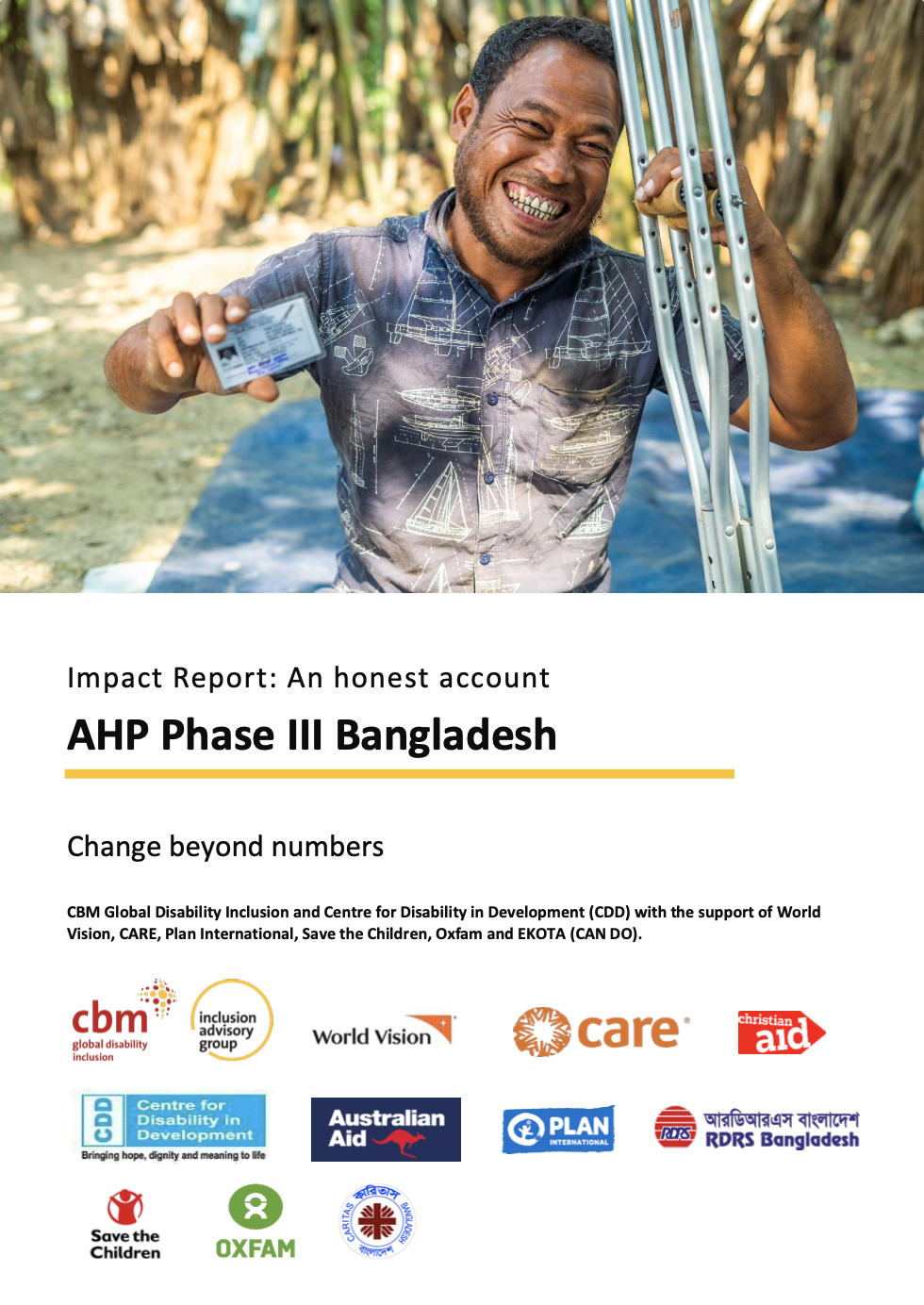
A new report seeking to reflect the lived experience of people with disabilities in the Rohingya AHP Phase III Response, their stories and feedback on what has changed for them, and the continued barriers they face.
This document gathers evidence of the progress and impacts that AHP Phase III interventions have achieved for people with disabilities. This document draws on focus group discussion data from people with disabilities in camps and host communities, AHP reports, case studies and key informant interviews with the AHP Disability Inclusion Working Group and the six AHP partner Disability Inclusion Focal Points.
The Australian Government’s Australian Humanitarian Partnership (AHP) Consortium brought together six partners: CAN DO (EKOTA), CARE, Plan, Oxfam, Save the Children, and World Vision during a three-year response program (2020 to 2023) to support Australia’s wider efforts to assist the Rohingya crisis. AHP Bangladesh Consortium contributes ‘to international efforts to meet humanitarian and protection needs and increase resilience and self-reliance of Rohingya and host populations in Bangladesh’ through the delivery of a well-coordinated and inclusive program in strong partnership with national and local partners.
This publication has been funded by the Australian Government through the Department of Foreign Affairs and Trade. The views expressed in this publication are the authors’ alone and are not necessarily the views of the Australian Government.
More information
- The project page ‘AHP to increase resilience and self-reliance of Rohingya and host populations in Bangladesh’
- Learning trip ‘AHP Bangladesh Consortium making disability inclusion a reality’
↓Download AHP Phase III Bangladesh Impact Report: An honest account 2.2mb pdf
